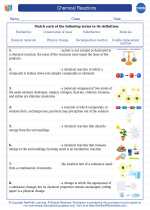Wildlife: An Overview
Wildlife refers to all living organisms, including animals, plants, and microorganisms, that exist in their natural habitat. These organisms play a crucial role in maintaining the ecological balance of the planet. The study of wildlife encompasses a wide range of topics, including biodiversity, conservation, ecology, and human-wildlife interactions.
Importance of Wildlife
Wildlife is essential for the functioning of ecosystems and provides numerous benefits to humans. Some of the key reasons why wildlife is important include:
- Ecological balance: Wildlife helps maintain the balance of natural ecosystems by contributing to processes such as pollination, seed dispersal, and nutrient recycling.
- Biodiversity: Wildlife represents the diversity of life on Earth and is a source of genetic, ecological, and cultural diversity.
- Economic value: Many industries, such as tourism, agriculture, and pharmaceuticals, rely on wildlife for their economic activities.
- Recreation and aesthetic value: Wildlife provides opportunities for recreational activities such as birdwatching, hiking, and wildlife photography, and contributes to the aesthetic beauty of natural landscapes.
Threats to Wildlife
Despite its importance, wildlife faces numerous threats, including habitat loss, climate change, pollution, poaching, and human-wildlife conflict. These threats have led to the decline of many species and ecosystems, highlighting the need for conservation efforts and sustainable management practices.
Studying Wildlife
Studying wildlife involves a multidisciplinary approach that integrates principles from biology, ecology, conservation science, and environmental management. Key topics of study include:
- Ecology: Understanding the interactions between different species and their environments.
- Biodiversity: Exploring the variety of life forms and their genetic, species, and ecosystem diversity.
- Conservation: Developing strategies to protect and sustainably manage wildlife and their habitats.
- Human-wildlife interactions: Investigating the relationships between humans and wildlife, including conflicts and coexistence.
Study Guide
If you're interested in learning more about wildlife, consider exploring the following resources:
- Books: Look for books on wildlife biology, ecology, and conservation written by experts in the field.
- Online courses: Many platforms offer courses on wildlife conservation, ecology, and biodiversity that can provide a comprehensive overview of the subject.
- Field experiences: Participate in nature walks, wildlife surveys, or volunteer programs with conservation organizations to gain hands-on experience.
- Documentaries and films: Watch documentaries that showcase wildlife and conservation efforts around the world.
- Scientific journals: Explore peer-reviewed articles in journals focused on wildlife research and conservation to stay updated on the latest scientific findings.
By delving into these resources, you can develop a deeper understanding of the importance of wildlife and the challenges it faces, as well as the strategies and efforts aimed at its conservation and sustainable management.
.◂Chemistry Worksheets and Study Guides High School. Chemical Reactions

 Worksheet/Answer key
Worksheet/Answer key
 Worksheet/Answer key
Worksheet/Answer key
 Worksheet/Answer key
Worksheet/Answer key
 Worksheet/Answer key
Worksheet/Answer key
 Worksheet/Answer key
Worksheet/Answer key
 Vocabulary/Answer key
Vocabulary/Answer key
 Vocabulary/Answer key
Vocabulary/Answer key
 Vocabulary/Answer key
Vocabulary/Answer key
